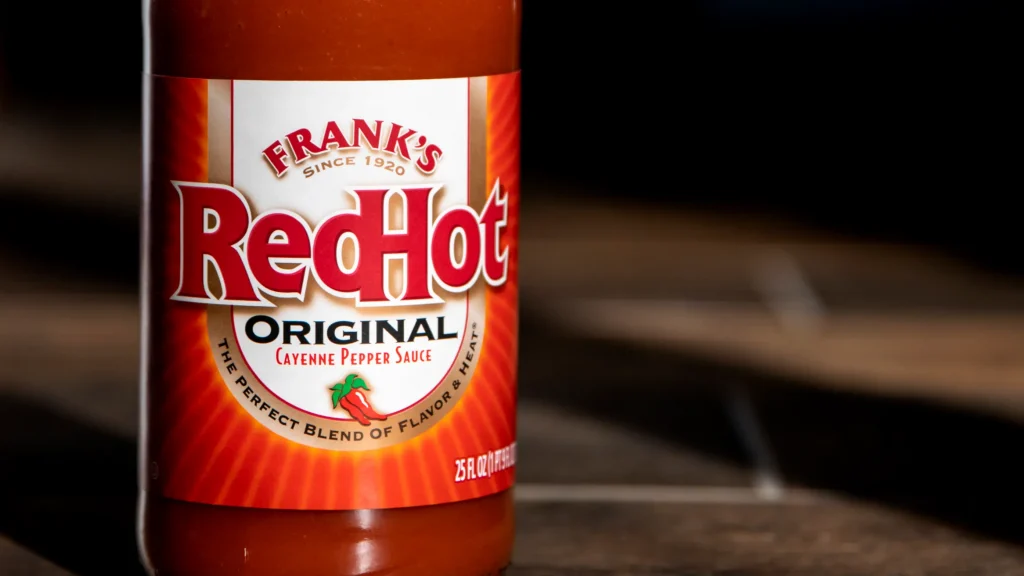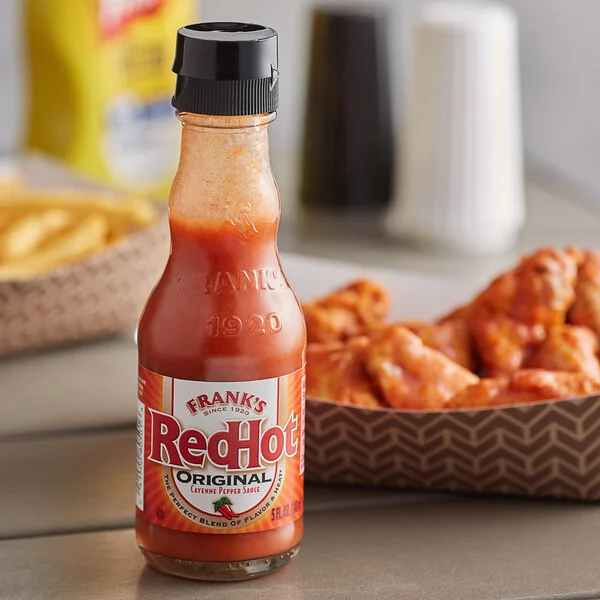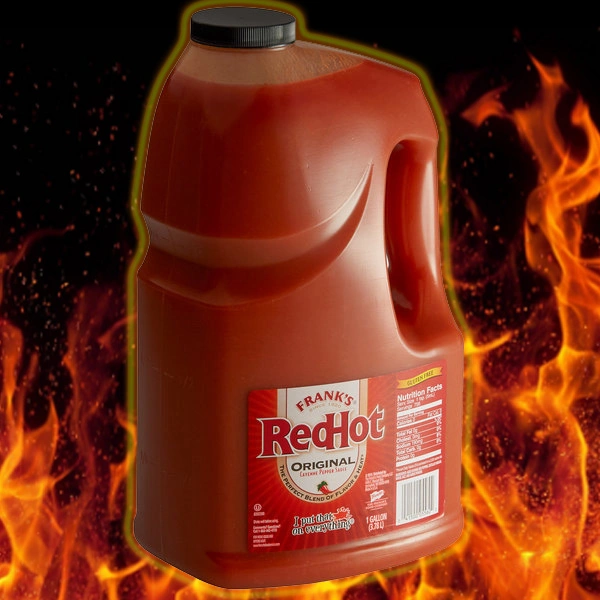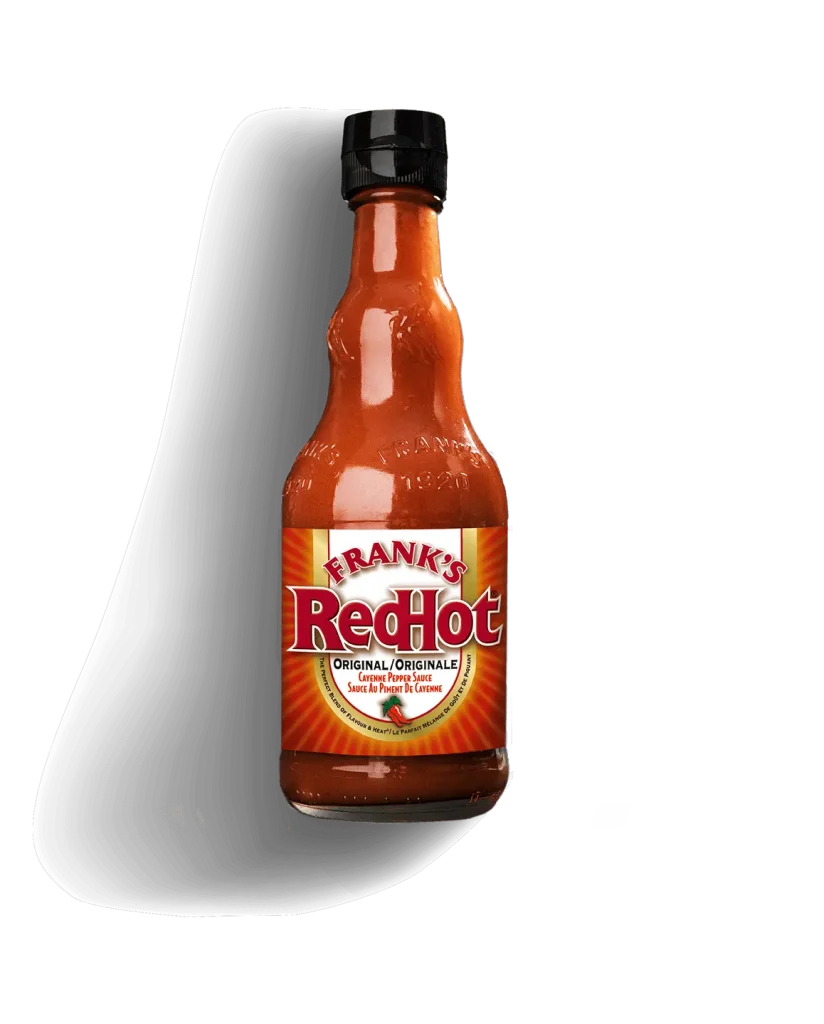This post contains affiliate links. When you buy through our links, we may earn a commission.
Does Frank’s red hot need to be refrigerated? In Simple words, the determining factor is how often you use the sauce. Not to mention, once opened, any sauce can keep for up to six months in a cool, dark place. Even after years, it will taste the same if stored in the fridge.

Most bottles of hot sauce have a shelf life of two to three years, so it’s simple to store it for months past the expiration date.
And it is the same for Frank’s Red Hot. In addition, Any hot sauce that uses vinegar, like Frank’s Red Hot, should be good for at least four years after opening. However, keeping them in the fridge instead of a cabinet at room temperature will prolong their shelf life.
We’ve gone into detail about whether or not Frank’s Red Hot sauce needs to be refrigerated so that you can make an informed decision.
Is It Necessary To Refrigerate Frank’s Red Hot?
You can read the answer to this query on the bottle label of Frank’s Red Hot sauce. In the instructions, refrigeration is mentioned. Read the directions on the label of every sauce you purchase, regardless of the brand. On the label affixed to the bottles of most brands’ products are instructions on how to use and store them.

In most cases, if you plan to use it soon, there is no need to refrigerate it. Its 24-month shelf life is the only drawback.
How Do You Know If Your Sauce Has Gone Bad?
There are several signs you can tell if your Frank’s Red Hot has already gone bad. Such as:
- Off smell: There isn’t one set smell of hot sauce because there are hundreds of flavors out there, but if yours smells yeasty, fermented, or off in any other way, discard it.
- Mold: It is definitely not a good idea to use hot sauce if it has faint mold spots. It is normal to see discoloration with oxygen exposure in the air, and it does not necessarily indicate a problem. The general rule is to throw away your hot sauce if you see anything growing in it.
- Changes in appearance: While it is perfectly normal for hot sauce to darken and turn brown, don’t completely ignore any other noticeable changes. Simply throw out anything that bothers you or makes you suspicious about the texture or appearance.
- An unpleasant taste: Everything seems fine to you, but the sauce tastes awful. If the taste is not what it used to be, then leave it out considering the quality.
The bottom line is that if you’re not sure your bottle of hot sauce is still safe to eat, don’t err on the side of caution and throw it away.
When Is It Mandatory To Refrigerate Your Hot Sauce
Refrigerating all products that are not stabilized with vinegar, lemon juice, sodium benzoate, or any other artificial preservative is mandatory. Since almost all hot sauces use some vinegar, they should be refrigerated after opening—the labels on each sauce indicate so.

To minimize the chance of microbial growth, do it better to be safe than sorry. Salsa and chutney, for example, should be refrigerated for the same reason. The best way to store fermented hot sauces is to refrigerate them, especially if they contain living cultures or probiotics.
As long as fermentation is hot, unless the sauce is pasteurized, or shelf-stable with vinegar or citric acid, fermentation will continue at room temperature. Therefore, it will continue to produce gas, which could result in the container overflowing, breaking, or bursting.

Refrigeration slows fermentation, keeping your hot sauce there until it is finished. But if you can finish it off quickly, it may not need to be refrigerated.
Conclusion
Once you open a bottle of Frank’s Red Hot or any other sauce, the oxygen in the air and light all affect what’s inside, along with the natural and artificial preservatives used to preserve the flavor.
It is possible for the flavor and spiciness of hot sauce to change over time due to oxidation, which affects the sauce’s color and flavor. You should throw away hot sauces that have been in the fridge for over a year and replace them with fresh bottles.
